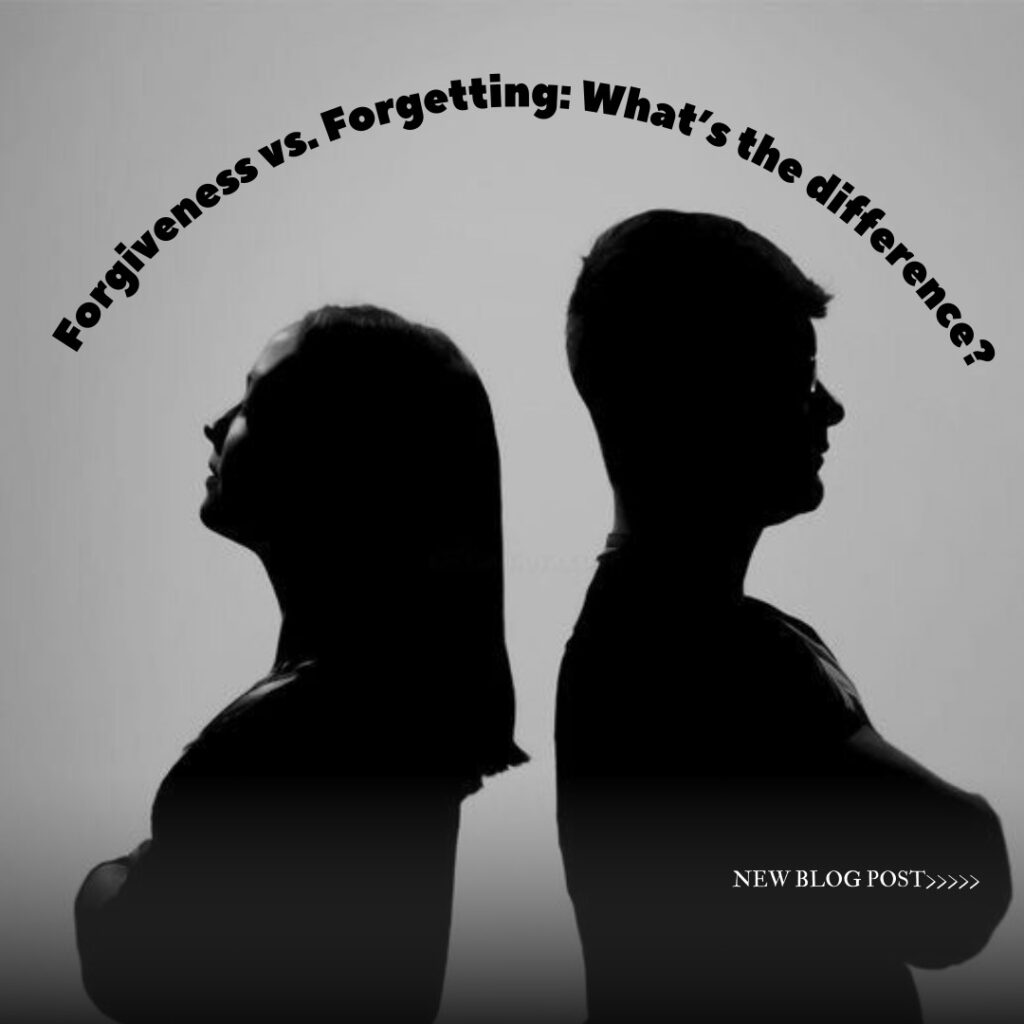THE DARK SIDE OF FORGIVENESS
Forgiveness is often seen as a cornerstone of healthy relationships. We are encouraged to let go
of grudges, forgive our partners for past transgressions, and move forward with love and
understanding. But what about when forgiveness enables abuse? What about when letting go
means ignoring the warning signs of toxic behavior?
In this post, we will explore the dark side of forgiveness in relationships and discuss the
importance of discerning when forgiveness is healthy and when it’s a recipe for disaster.
The Problem with Forgiveness:
Forgiveness can be a powerful tool for healing and growth in relationships. However, when taken
to an extreme, it can also enable abusive behavior. When we forgive our partner for hurtful or
toxic behavior, we may inadvertently send the message that their actions are acceptable.
This can create a toxic cycle of abuse, where the perpetrator feels emboldened to continue their
hurtful behavior, and the victim feels trapped and powerless.
The Difference between Forgiveness and Accountability:
It’s essential to distinguish between forgiveness and accountability. Forgiveness means letting go
of resentment and anger towards our partner. Accountability, on the other hand, means holding
our partner responsible for their actions.
In healthy relationships, forgiveness and accountability go hand-in-hand. We forgive our partner
for their mistakes, but we also hold them accountable for their actions. This ensures that our
partner takes responsibility for their behavior and makes amends.
When Forgiveness Enables Abuse:
So, when does forgiveness enable abuse? Here are some red flags to watch out for:
1. Repeated hurtful behavior: If your partner consistently displays hurtful or toxic behavior,
forgiveness may enable them to continue this behavior.
2. Lack of accountability: If your partner refuses to take responsibility for their actions,
forgiveness may inadvertently absolve them of accountability.
3. Gaslighting and manipulation: If your partner uses gaslighting or manipulation to control or
distort reality, forgiveness may enable them to continue this behavior.
Breaking the Cycle of Abuse:
So, how can we break the cycle of abuse and ensure that forgiveness doesn’t enable hurtful
behavior? Here are some strategies:
1. Set clear boundaries: Establish clear boundaries and communicate them assertively to your
partner.
2. Hold your partner accountable: Ensure that your partner takes responsibility for their actions
and makes amends.
3. Seek outside help: Consider seeking the help of a therapist or counselor to work through
issues and develop healthy communication patterns.
In conclusion, Forgiveness is a complex and multifaceted issue in relationships. While forgiveness
can be a powerful tool for healing and growth, it can also enable abuse when taken to an
extreme.
By distinguishing between forgiveness and accountability, recognizing the red flags of abuse, and
breaking the cycle of abuse, we can ensure that forgiveness is a healthy and empowering process
in our relationships.
If you’re struggling with forgiveness or accountability in your relationship, consider seeking the
help of a therapist or counselor. Our team of experts is here to support you in developing healthy
communication patterns and breaking the cycle of abuse.
Remember, forgiveness is not a one-size-fits-all solution. It’s essential to approach forgiveness
with discernment and to prioritize accountability and healthy communication in our
relationships.
